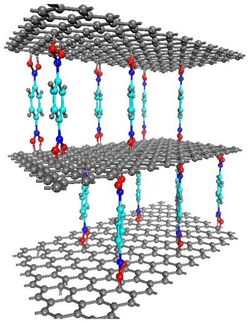Chemical Companies on the Verge of a New Investment Cycle
Demand for automation and control solutions in the chemical sector is being hampered by twin factors of chemical production moving overseas, and the absence of new chemical plants being set up in the western states of the European Union. The main implication of this fall in demand is that solution suppliers without an installed base of existing products risk being marginalised simply due the lack of truly 'open' opportunities.
Nonetheless, the counterbalancing trend is that chemical manufacturers are expected to invest in retrofits and upgraded systems in order to improve their production efficiency and counter intense competition from low-cost suppliers. The clear findings of Frost & Sullivan research among end users shows that chemicals firms are favouring existing suppliers for upgrades, particularly in the key distributed control systems (DCS) product sector where relationships are well-entrenched.
Even as new technologies are brought to the market, the uptake within Europe's chemical industry has been slow due to a cyclical decline in investment. Solution providers have had to work harder to convince chemical customers of the long-term cost reduction benefits in the new generation of automation and control solutions, particularly when trying to develop new supply relationships.
Chemical firms are particularly reticent about investing in supervisory control and data acquisition (SCADA) solutions, and SCADA suppliers in particular are faced with convincing them of increased functionality and reliability of SCADA, particularly in batch-oriented chemical manufacturing. Moreover the importance of branding and reputation are paramount among larger customers seeking a complete 'solution' concept. Frost & Sullivan Research Manager, Danny Solomon explains that "New firms seeking to penetrate these well established supply structures will have to provide reliable migration from long established systems. This is favouring the larger suppliers, particularly with a strong international presence, and a track record of success in other comparable industries."
Suppliers of new-generation systems like MES and IAM solutions in particular, face a considerable challenge in persuading chemical customers to additionally purchase their solutions at a time when clients need to be convinced of the ROI in each and every purchase. The challenge of educating end users of the potential cost efficiencies and production benefits will undoubtedly aid in growth of these sectors. Ironically it is the build up of competitive pressure from low-price competition from outside the EU, this will boost chemicals firms perception of many cost-saving solutions. These products are being rapidly developed and exploited by large branded solution suppliers, which is also fuelling the projected rate of uptake throughout the industry as a whole.
"After two years of low and stable interest rates there are definite signs of an upturn in investment from 2005 in the chemical sector in spite of uncertainty surrounding the EU constitution, and the Euro." says Mr Solomon. Revenue from sales of automation and control solutions to the chemical sector amounted to $1.3 billion in 2004 but is expected to touch $1.7 billion by 2011, as the continued threat of low-price competition will stifle attempts to drive like-for-like revenue gains.
If you are interested in a virtual brochure, which provides manufacturers, end users, and other industry participants with an overview of the latest analysis of the Automation and Control Solutions in the European Chemical Sector, then send an e-mail to Magdalena Oberland - Corporate Communications using the Contact button below.
Most read news
Organizations
Other news from the department business & finance

Get the chemical industry in your inbox
By submitting this form you agree that LUMITOS AG will send you the newsletter(s) selected above by email. Your data will not be passed on to third parties. Your data will be stored and processed in accordance with our data protection regulations. LUMITOS may contact you by email for the purpose of advertising or market and opinion surveys. You can revoke your consent at any time without giving reasons to LUMITOS AG, Ernst-Augustin-Str. 2, 12489 Berlin, Germany or by e-mail at revoke@lumitos.com with effect for the future. In addition, each email contains a link to unsubscribe from the corresponding newsletter.



























































